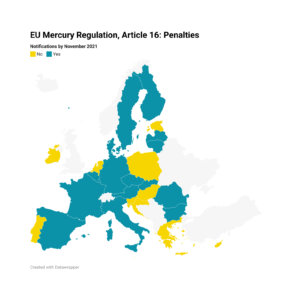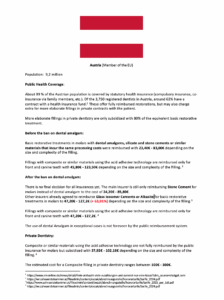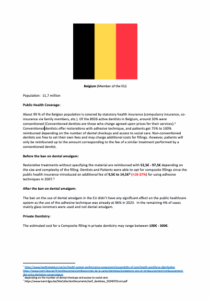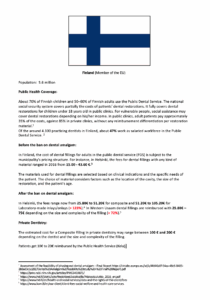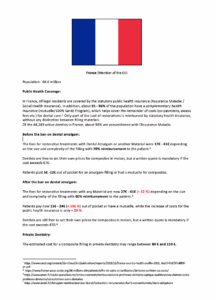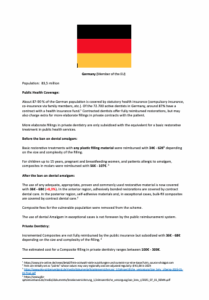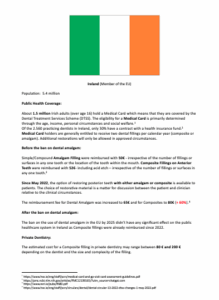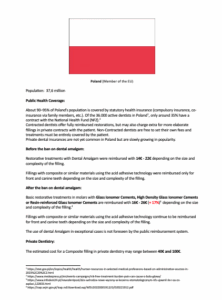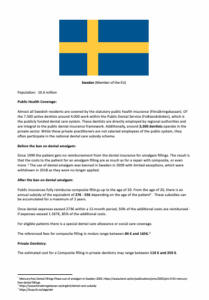For the effective implementation of regulations, it is necessary to establish penalties in case of non-compliance.
Penalties for misuse of mercury in dentistry may be found in various regulations such as Health Care Provider Acts, Public Health Regulations, Chemical Laws, or Environmental Protection Acts.
In the case of EU member states, there may also be specific penalties for violations of the provisions of Regulation (EU) 2017/852 on mercury.
According to Article 16 of the EU Mercury Regulation, Member States shall lay down the rules on penalties applicable to infringements of the Regulation and shall take all measures necessary to ensure that they are implemented. The penalties provided for shall be effective, proportionate and dissuasive.
Member States shall, by the respective dates of application of the relevant provisions of this Regulation, notify the Commission of those rules and of those measures and shall notify it, without delay, of any subsequent amendment affecting them.
Since the EU Mercury Regulation entered into force 15 Member States notified the EU about their rules on penalties (as of 19 August 2021 *) which include penalties related to the obligations to use (or remove) amalgam only in practices where an amalgam separator is available and the exclusive use of amalgam in children up to 15 years of age, pregnant and lactating women for whom amalgam is absolutely necessary for medical reasons.
*Ask The EU: 👉 https://www.asktheeu.org/en/request/article_16_of_regulation_eu_2017?
Here is an overview:
In Sweden, Finland and Denmark dentist risk a fine or an imprisonment for up to two years.
In Germany and Bulgaria, the fines are up to 50.000 €, in Austria up to 40.000 € (in case of repetition) in the Czech Republic up to 7.800 €, Slovakia up to 3.319 €, Romania up to 1.600 €, Latvia up to 1.400 € and Lithuania up to 600 €.
Here is a list with quotes and references:
1. Sweden 🇸🇪
A fine or imprisonment for a term not exceeding two years shall be imposed for an offence against the environment if, intentionally or through negligence
👉Environmental Code (1998 :808), Chapter 29 Article 1 and Article 3 the first paragraph
2. Finland 🇫🇮
A fine or imprisonment for a term not exceeding two years.
👉Chemicals Act, Waste Management Act, Penal Code 1 § (24.8.2018/761) Deterioration of the environment
3. Denmark 🇩🇰
Unless a higher penalty is prescribed by other law, a fine shall be imposed. The penalty may be increased to imprisonment for up to 2 years if the offence is committed intentionally or with gross negligence and if, in committing the offence
1) caused damage to human or domestic animal life or health or created a danger thereof,
2) damage or danger to the environment
👉§59(1)(1) and (2) of the Chemicals Act, as laid down in Legislative Decree No 115 of 26 January 2017
4. Italy 🇮🇹
An administrative fine of 10,000 to 100,000 euros for dentists who use dental amalgam in violation of the regulation and the fine of 4,000 to 20,000 euros for those who do not ensure that the management and collection of their amalgam waste and the same penalty, as well as the temporary closure of the activity, for those who use dental amalgam or remove fillings containing dental amalgam in violation of the rules, until the installation of appropriate amalgam separators.
Atto del Governo 249. Disciplina sanzionatoria per la violazione delle disposizioni divcui al regolamento (UE) 2017/852 sul mercurio
5. Germany 🇩🇪
Any person who intentionally or negligently contravenes a directly applicable provision in legal acts of the European Communities or of the European Union may be punished by a fine of up to 50.000 €.
6. Bulgaria 🇧🇬
Fines from 10 000 to 100 000 BGN; (ca. 5000 to 50000 €)
In case of a repeated violation, the fine, respectively the proprietary sanction shall be imposed in a double amount.
Act on Protection from the harmful impact of chemical substances and mixtures. Chapter eight: Administrative punitive provisions, Section I; Compulsory administrative measures, Article 44-48
7. Austria 🇦🇹
To be fined from a minimum of €500 up to €20180, in case of repetition up to €40375. The attempt is punishable.
👉Art. 71 of the Federal Chemicals Act 1996
8. Czech Republic 🇨🇿
Who uses dental amalgam in the provision of health services in contravention of directly applicable European Union legislation on mercury should be punishable with a fine up to CZK 200 000 (ca. 7.800 €)
👉Health Services Act, Zákon č. 372/2011 Sb
9. Slovakia 🇸🇰
Fines up to EUR 3 319
10. Romania 🇷🇴
Fines from 3.000 lei to 5.000 lei (ca. 600-1.000 €) for natural persons and a fine from 5.000 lei to 8.000 lei (ca. 1.000-1.600 €) for legal persons.
11. Latvia 🇱🇻
A fine shall be imposed on natural persons from 30 to 430 €, and on legal persons – from 350 to 1.400 €.
12. Lithuania 🇱🇹
Fines of between 400 and 600 €
13. Spain 🇪🇸
Laws on Contraband, penalties provided for REACH, Prevention and Control of Pollution, Waste and Contaminated Soils, Air Quality and Atmospheric Protection, General Health, Consumer and User Protection Regulations and other complementary laws.
👉https://environmentalmedicine.eu/wp-content/uploads/Penalties-SPAIN.pdf
14. Belgium 🇧🇪
Law on product standards aimed at promoting sustainable production and consumption and protecting the environment, health and workers and Royal Decree on medical devices
👉https://environmentalmedicine.eu/wp-content/uploads/Penalties-BELGIUM.pdf
15. Luxembourg 🇱🇺
Act of February 23, 2010 concerning certain implementing rules and the sanctioning of Regulation (EC) No 1102/2008 of the European Parliament and of the Council of October 22, 2008 on the banning of exports of metallic mercury and certain mercury compounds and mixtures and the safe storage of and the safe storage of metallic mercury.
👉https://environmentalmedicine.eu/wp-content/uploads/LU-penalties-Art-16-Hg-Reg.pdf
16. France 🇫🇷
Code de l’environnement for installations classified for the environment and Code de l’environnement regarding waste management
👉https://environmentalmedicine.eu/wp-content/uploads/Penalties-FRANCE.pdf

